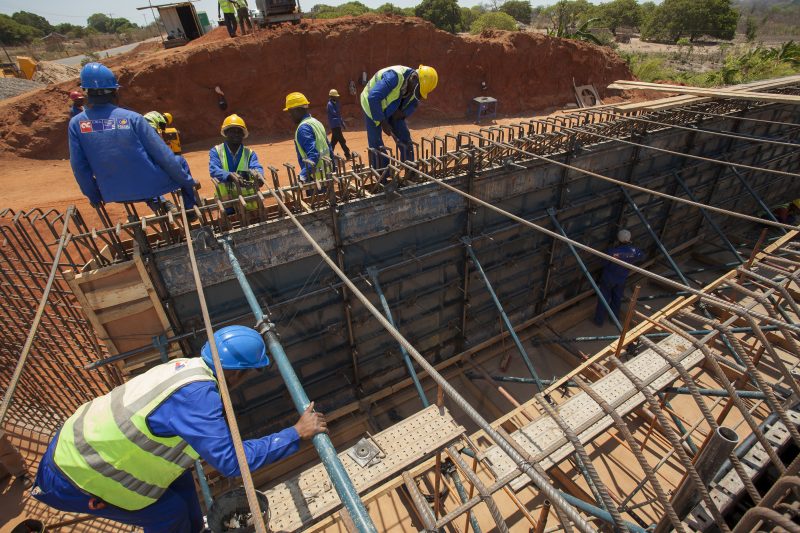
Jake Lyell
Workers construct a culvert in Northern Mozambique as part of MCC's compact in the country. Such infrastructure contracts in partner countries are governed by MCC’s Program Procurement Guidelines.
MCC created a set of Program Procurement Guidelines (PPG) in order to standardize MCC-funded procurement processes. We evaluate and update the PPG, to make sure procurements are effectively helping our partner countries achieve results. Over this last year, we introduced quality and performance based selection (QPBS) for goods and construction works—which means MCC partner countries not only look at price but also consider additional factors such as quality, experience, and past references when selecting suppliers and contractors.
Traditionally public procurements funded by donors and by many governments, goods and works have been procured through either Life Cycle Costing (LCC) or Lowest Price Technically Acceptable (LPTA) procurement processes—introducing QPBS procurement for goods and works pushes the envelope to prioritize quality in service.
Life Cycle Costing (LCC) —LCC is defined as “the process of compiling all costs that the owner or producer of an asset will incur over its lifespan.” For example, the LCC cost of owning a personal vehicle includes the cost of purchasing a particular brand, the costs of maintenance and fuel, and residual costs over a certain period—say five years—of ownership.
Lowest Price Technically Acceptable (LPTA) — Under LPTA, the buyer first determines the technical compliance against a set of criteria in the bid document, and then selects the lowest priced bidder who passes the compliance test.
MCC, however, has found that applying LCC is difficult because the future costs of owning an asset are “estimates” from different bidders, which cannot be meaningfully or reliably compared. With LPTA, lowest price doesn’t allow for differentiation between a good bidder versus the best bidder. This is why MCC has introduced the QPBS evaluation process, which factors both price and non-price criteria, making it “best value procurement” in true sense, where a buyer can differentiate between a bidder who just meets the requirements from a bidder who provides the best value for money.
MCC partner countries will now select contractors and suppliers based not solely on the lowest price, but also taking into account the overall quality and reliability of the bidder and of the offered product or service, thus bringing the best value to American taxpayers and to our partner countries. For example, the QPBS for construction works could include scores for the quality of the proposed technical team, construction experience in similar projects, longevity of operations in the market, and past experience of working in the country. More experience in each area would allocate more scores to the bidder. Similarly, for goods and supplies such as computers, vehicles, or environment monitoring equipment, the scoring factors could include the presence of a local maintenance service, references from similar sized clients for past deliveries, or response time for repair.
Main Challenges and Constraints
QPBS requires careful planning to ensure fairness in evaluation. The non-price factors need to be relevant to the contract, and evaluation timelines should be tailored to the longer process required for evaluating non-price factors.MCC has been piloting QPBS procurement for goods and works in multiple countries: In Tanzania for the construction of power distribution lines, in Benin and Ghana for energy sector procurements, and a small value procurement for vehicles in Nepal. The results of these procurement processes, and the resulting contractors, so far appear to be of high quality, and the market feedback from the current contractors and potential bidders has been positive.
Now in 2020, MCC plans to roll out QPBS in all MCC-funded MCA procurements.
How Is QPBS Different from Other Approaches?
When compared with LCC or LPTA procurement, QPBS improves the quality of the evaluation process, and provides the best value to the taxpayer and the partner country. Selection based on the proven value of the bidder and its references, instead of relying on the bidder’s expected claims of the future costs or on technical compliance with a minimal standard, produces a better result.MCC learns from each procurement, and we expect the next year of using QPBS will provide a rich set of experiences to inform and improve future procurement guidelines.
Learn more about how to “work with us” on the MCC website.

